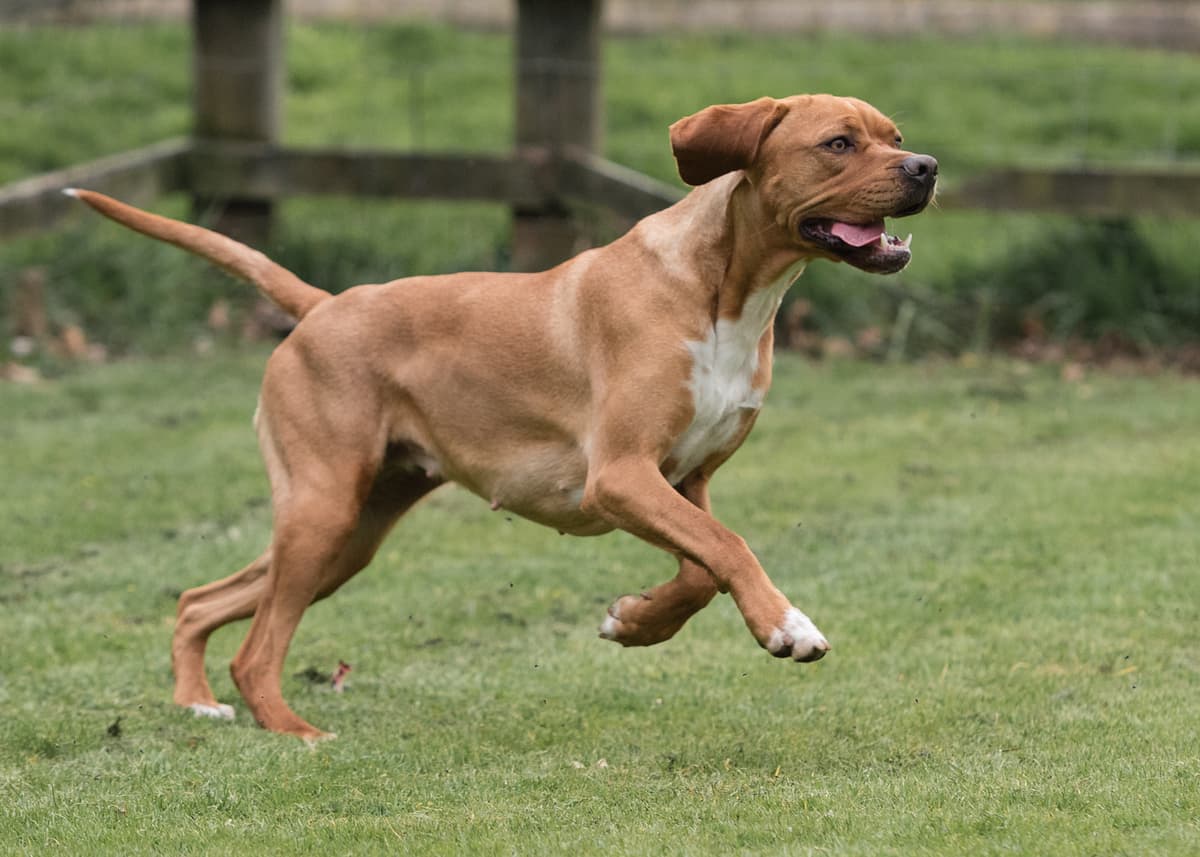Portuguese Pointer vs French Bulldog
Discover the differences between Portuguese Pointer and French Bulldog to make the best choice for your situation.
Try different breeds

Portuguese Pointer
Energetic, loyal, and affectionate, this breed thrives on human companionship and outdoor adventures. Eager to please and highly trainable, they make a devoted family partner.

French Bulldog
Compact, playful, and affectionate, this breed charms with its expressive face and easygoing personality. Ideal for city living, French Bulldogs make steadfast companions and loving family pets.
Quick comparison
Medium
20–27 kg
Short, dense
12–14 years
16–22 kg
High energy
Small
9–13 kg
Short, smooth
10–12 years
8–12 kg
Low activity needs
Personality & behavior
Compare the personality traits and behavioral characteristics of both breeds.
Portuguese Pointer
Warm and affectionate, bonds closely with family
Quick learner, responds well to training
High stamina, needs frequent physical activity
Enjoys games and interactive activities
Adjusts moderately to new routines or environments
French Bulldog
Affectionate with people and enjoys companionship
Learns routines quickly but can be stubborn
Prefers short play sessions and moderate walks
Enjoys interactive games and gentle roughhousing
Comfortable in apartments and various environments
Care needs
Exercise, grooming, and daily care requirements
Portuguese Pointer
Hip dysplasia, ear infections
French Bulldog
Brachycephalic syndrome, skin allergies
Suitability
How well each breed fits different living situations and families
Portuguese Pointer
Challenging for beginners
Needs experienced guidance and consistent training for best results
Not ideal
Requires ample space and frequent exercise to thrive
Perfect fit
Thrives with active owners who provide daily physical and mental stimulation
Generally suitable
Patient and playful but supervision needed due to high energy levels
Usually friendly
Can get along with other pets if socialized early
Prone to anxiety
Dislikes long periods alone and may develop separation issues
French Bulldog
Great choice
Easygoing temperament and manageable size suit first-time owners well
Perfect fit
Quiet and compact, they adapt well to small apartments
Not ideal
They tire quickly and don’t match very active lifestyles
Highly suitable
Gentle and playful, they are patient with young children
Very friendly
Generally sociable and get along with other pets if introduced properly
Prone to anxiety
They dislike being left alone for long periods and may develop separation issues
Breed strengths
What each breed excels at and their best qualities
Portuguese Pointer
- Strong natural hunting and pointing instincts
- Highly loyal and devoted to family
- Good stamina for long outdoor activities
- Generally friendly with people and children
- Adaptable to various climates and environments
French Bulldog
- Affectionate with families and children
- Adaptable to apartment living
- Minimal grooming requirements
- Generally quiet and not prone to barking
- Strong loyalty to owners
Challenges & considerations
Potential challenges and considerations for each breed
Portuguese Pointer
- Needs significant daily physical exercise
- May become bored without mental stimulation
- Can be strong-willed during training
- Prone to separation anxiety when left alone
- Requires regular grooming to manage shedding
French Bulldog
- Prone to breathing difficulties due to flat face
- Sensitive to extreme heat and cold
- May develop separation anxiety
- Stubborn during training sessions
- High risk of obesity without portion control
Ready to choose your perfect breed?
Learn more about each breed or compare other breeds to find the perfect match for your lifestyle.
Discover more helpful tools
Make use of our other free tools to get the most out of your pet experience
